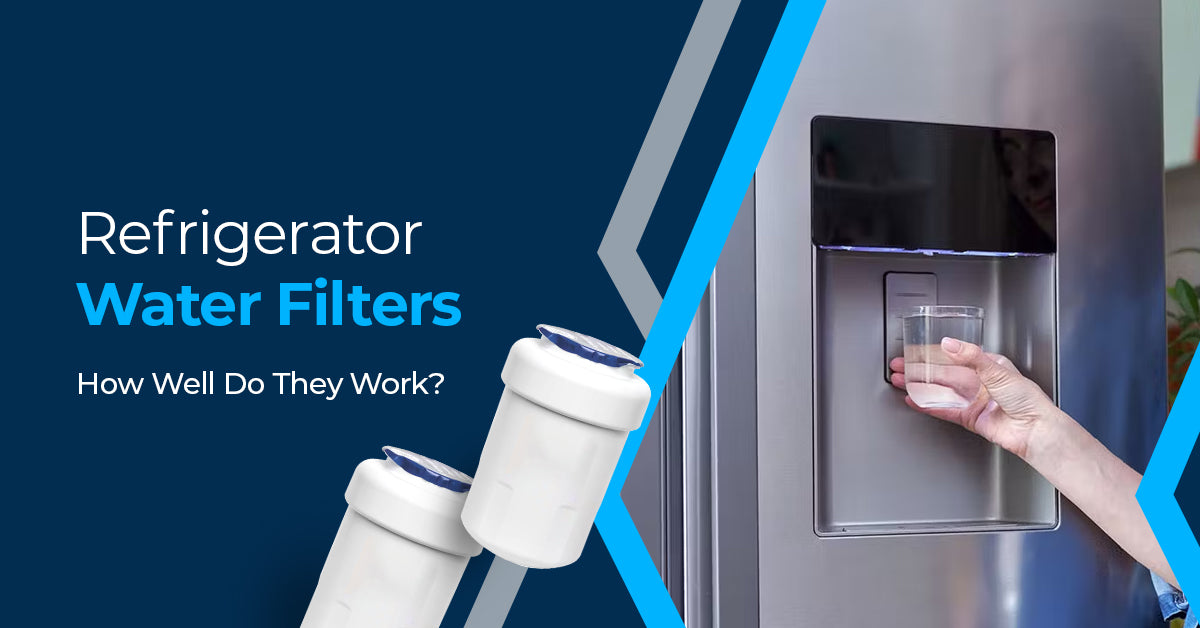
Oct 01 , 2024
How Efficiently Do Refrigerator Water Filters Purify Drinking Water?
Almost 90% of Americans rely on community water systems, but the quest for the highest quality of water remains a shared objective. Agree or not?
With increasing concerns about contaminants in the water supply, many households are turning to refrigerator water filters. These systems have emerged as a fundamental aspect, offering an added layer of purification to every residence.
Now the question is -
How does a fridge water filter purify drinking water?
Is it efficient enough to ensure safety and better health?
Keep reading to have a great takeaway!
How do water filters in a fridge actually work?
Water filters designed for a refrigerator are usually placed inside the fridge or connected externally to the water line. This strategic placement allows them to filter tap water as it flows from the supply to the built-in water dispenser or ice maker.
The key component of these filtration systems is either an activated carbon filter or a reverse osmosis water filter.
Activated carbon filters - are used to capture physical impurities in the water supply. The activated carbon is characterized by its numerous tiny micropores, which provide a vast surface area for trapping different sizes of contaminants. Additionally, activated carbon utilizes chemical reactions to transform harmful chemicals, such as chlorine, into harmless byproducts. As a result, this filtration process significantly enhances the taste and odor of the water, delivering a refreshing and clean drinking experience.
Reverse osmosis filters - use a semipermeable membrane to eliminate even the smallest particles that are harmful to health. From giardia to E. coli, these can trap everything that you can't ever imagine. Unlike carbon filters, RO filters can reduce levels of arsenic, fluoride, sodium, calcium, chromium, and other dissolved salts and minerals from your water supply. Indeed, these contribute to better health and hydration.
What are the different contaminants fridge water filters remove from tap water?
When it comes to purifying drinking water, refrigerator water filters excel at removing specific contaminants. These are -
- Chlorine, which is often used during the water treatment process
- Lead, usually enters the water from old lead pipes
- Nitrates and nitrites, associated with agricultural chemicals and pesticides
- Volatile organic compounds (VOCs) generated from industries
- Microorganisms like bacteria, mold, and viruses that grow in water
The water filter for a fridge can reduce water impurities to safer levels, depending on the quality of your filter.
Final Takeaway
Installing a refrigerator water filter is indeed an effective and convenient way to improve the quality of water you consume. Of course, you should understand their limitations and effectiveness to get the desired outcome.
With so many filters available for a fridge, you should consider a few things to ensure better performance. First, the filtration unit should be compatible with the fridge you already have. For example, if you are using an LG refrigerator, make sure you invest in an LG water filter. Second, check out their quality standards and NSF/ANSI certifications. Third, take a look at the filter capacity and lifespan to avoid frequent replacements. Fourth, choose high-quality water filters that can yield significant benefits.
Guess what? Water Filters Fast can exceed all your expectations. Visit us to explore our products.


